Part 3. Inflation, waging trade war, and counterfeiting?
This is Part three of a series showing how inflation, deflation, barter, tariffs, taxes, postage, war, counterfeiting, history, economics, free trade, famine, dearth, climate, auctions, precious metals, religion, and education are combined into one great whole.
Part Three. Why study Inflation, waging trade war, and counterfeiting?
8) Inflation by Foreign governments , is waging trade or hot war with counterfeit coins and currency of the enemy target country. This has been a favorite tactic, if possible, in many wars and conflicts. Destroy the enemies’ economy and down grade it to a barter primitive economy. A country would print counterfeit currency of the enemy and then introduce it to the enemy. The goal is ultimately to force the economy of the enemy into a barter economy which reduces activity the enemies business activity to one percent of previous activity. The counterfeit money drives in as extra currency which has the effect of more money chasing fewer goods, hence Inflation. But Inflation causes it own deflation, so the inflated prices of goods or food does not relieve the laborer, who cannot afford the higher prices. The wages are deflated, eventually causing a deflation down to barter. Known examples include the following –
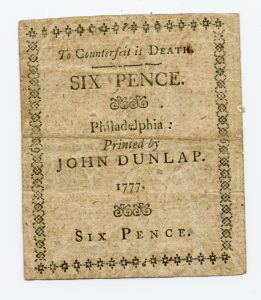 1777 for the 6 pence Printed by John Dunlap Philadelphia. To counterfeit is Death 068.jpg- The year before, in 1776, Dunlap printed the first 200 broadsides titled ‘In Congress July 4th, 1776, a Declaration of Independence.’
1777 for the 6 pence Printed by John Dunlap Philadelphia. To counterfeit is Death 068.jpg- The year before, in 1776, Dunlap printed the first 200 broadsides titled ‘In Congress July 4th, 1776, a Declaration of Independence.’
The British counterfeited American Continental currency $3[1] to $8 during the War of Independence. The Brits intended to ruin the American economy, but the ruin was not done fast enough to tip the war for the Brits. Perhaps it was the hand of the Lord helping America, like raising Lazarus from the dead. The American economic ruin, or barter economy, came in the mid 1780’s after the Treaty of Paris.[2] but too late for the British Army. These images are actual Continental currency, but they are over 200 years old, are they American issued or British 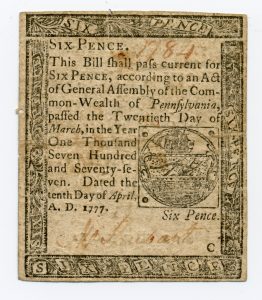 counterfeits? 1777 Six pence SN 1784 April 10 Pennsylvania H Fraubant ship plow 067. Six Pence. This Bill shall pass current for Six Pence, according to an Act of General Assembly of the Common Wealth of Pennsylvania, passed the Twentieth day of March in the Year 1777, Dated the Tenth Day of April A.D. 1777.
counterfeits? 1777 Six pence SN 1784 April 10 Pennsylvania H Fraubant ship plow 067. Six Pence. This Bill shall pass current for Six Pence, according to an Act of General Assembly of the Common Wealth of Pennsylvania, passed the Twentieth day of March in the Year 1777, Dated the Tenth Day of April A.D. 1777.
1) In 2009, North Korea was counterfeiting USA $100 bank notes, at the rate of tens of millions a year, and circulating them in Asia, at a discount of 60% ( i.e. a $100 counterfeit note would sell for $40, then passed on for more, until it circulated at par or $100).  Postage was forty nine cents (49 cents) ahead of the 2014 Sochi winter Olympics. the 200th anniversary of the Star-Spangled Banner with a photograph of the flag that flies over Fort McHenry National Monument and Historic Shrine in Baltimore. This flag is a replica of the one that inspired Key to write a poem, “Defense of Fort McHenry”, after Fort McHenry
Postage was forty nine cents (49 cents) ahead of the 2014 Sochi winter Olympics. the 200th anniversary of the Star-Spangled Banner with a photograph of the flag that flies over Fort McHenry National Monument and Historic Shrine in Baltimore. This flag is a replica of the one that inspired Key to write a poem, “Defense of Fort McHenry”, after Fort McHenry
9) Inflation caused by Epidemic – 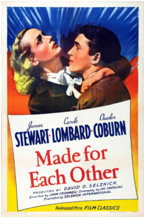 The spread of Disease can drive up health costs. So get your shots, vaccinate your family, against disease – an increase in demand for medicine means inflation of the price of antibiotics or inflation of medicines. ‘Made for each other’ with jimmy Stewart and Carol Lombard – describes an inflation for units of penicillin to treat one child. [3]
The spread of Disease can drive up health costs. So get your shots, vaccinate your family, against disease – an increase in demand for medicine means inflation of the price of antibiotics or inflation of medicines. ‘Made for each other’ with jimmy Stewart and Carol Lombard – describes an inflation for units of penicillin to treat one child. [3]
10) Inflation in colonial America described in novel. My Name is Resolute by Nancy Turner. Thomas Dunne Books, St Martins Griffen New York, p. 367.
”In 1752 for reasons I could not comprehend, the prices of all my wool and linen doubled, and then doubled again,. It took a shilling to buy what a farthing bought a few months before, our money dwindled, not in the amounts, for I guarded and counted the coins once a week, then placed them back in their little hole. The dwindling seemed to come from some incredible force, something that made everything cost more, and , consequently the money worth less.’’
- 438-439.
‘’ There’s talk. Among our friends in town. Talk of acting against the crown. Refusing to be subject to another tax. Another war. No one in parliament has ever been to this coast, did you know that? Everything costs more and more. Today I could not buy hinges because they were not to be had, and if I must make them or buy them secretly, it will cost me dearly. And I cannot sell my furniture for a price people will pay. What do you mean to do? Nothing yet. The talk is just there, that we could band together to force prices down. Don’t buy British goods. Make our own or do without. Or depend on people like your brother, to bring them from France or Russia or the Indies. What goods are British? That’s just it. Almost nothing, and they buy and sell to us for three or four times what it is worth. Cauldrons. Snuff and snuff boxes and shoes. They have passed a new law that no tradesman is allowed to make iron work. Piggins and bars must be sent to England, and we must buy it back after being worked. Any man caught working iron shall be arrested and tried for treason. Anyone buying iron from other than England faces the same. Not a horse shoe! We will have to take that iron we found in the fields years ago and melt it in secret or face arrest for having it.’’ Circa 1757 January 20. ‘’Not a candlestick, I tell you. Not a single hinge. We have to be able to make our own. Don’t try to sell your cloth; even the silks from Lady Spencer will be taxed for half their value, and I cannot pay it. We will be arrested if we don’t pay. Trade with the neighbors and don’t go to town. I heard from young Paul [Revere] that their taking our iron will be the subject of the next town [Lexington] meeting. It will amount to having to smuggle home a crane for the fire or a shoe for the horse.
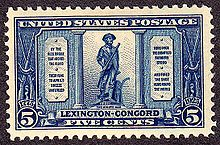 ”There will not even be coin, but we will have printed money on paper that could catch fire like a twig. I am joining the rebellion. The whole of Lexington must be of one accord on this, for we must act together or hang separately. She answered the Quakers do such, they do not trade with outsiders. I don’t know about iron, but they make shoes.’’
”There will not even be coin, but we will have printed money on paper that could catch fire like a twig. I am joining the rebellion. The whole of Lexington must be of one accord on this, for we must act together or hang separately. She answered the Quakers do such, they do not trade with outsiders. I don’t know about iron, but they make shoes.’’
Pp 440
‘I do not like being so fenced by their rules of trade. I’m no longer allowed to sell to my neighbors for barter, did you know that? It will get worse, too. I am sure.’’
Pg 453-454. ‘My brother made a movement which looked as if he settled his head painfully upon his shoulders. It came from a Tory hold after being stolen from an honest privateer. 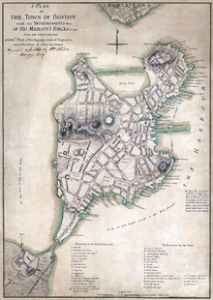 One minute they contract men to patrol the seas, and the next they hang your whole crew for doing exactly what they’d been assigned to do. You may find it causes raised eyebrows to spend doubloons but they are worth more than a sovereign apiece. Melt them down. You’ll find the silversmith in Boston town [Paul Revere] willing and discreet. You know whom I mean.
One minute they contract men to patrol the seas, and the next they hang your whole crew for doing exactly what they’d been assigned to do. You may find it causes raised eyebrows to spend doubloons but they are worth more than a sovereign apiece. Melt them down. You’ll find the silversmith in Boston town [Paul Revere] willing and discreet. You know whom I mean.
The time will come when it will take a bar of gold to buy a loaf of bread, mark my words. Take no paper money in exchange from now on. Only gold and silver coin. No bill will be worth the paper it is printed on, in a year or two.’ ‘I thought you to be a contracted Privateer. Until the Limeys began to waylay their own contracted Captains like myself, and using the word tax rifled our trade goods so that we were left with only half of them to show. The East India Company controlled every grain of spice, every inch of silk, and had doubled and tripled the prices. Once I got back into port I owed the port taxes on the whole of it, and they’d gone up five fold. What they left me with, after three voyages, was a debt that would sink a fleet.’
[This business model of the British, to tax shipping in transit with prizes or goods, continued at least through the time of Lord Cochrane (Napoleonic Wars 1795-1829) days, even against the British own Commissioned crews and ships. Lord Cochrane remarked that after he brought in prizes, usually captured French or Spanish ships to Malta, the location for the Admiralty’s Prize courts, the percentages paid out to the Prize court, Admiralty and Crown and then taxed on the whole, left Lord Cochrane in debt to pay his crew their promised share. The more Cochrane caught or captured, the less he owned. This policy in 1810 reminded the new generation of 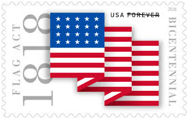 American seamen why their fathers had fought for Independence.] Postage was half dollar (50 cents) when the 2018 US National Debt was over $20 trillion. 1818 Bicentennial of Flag Act. The postage stamp is a way to measure purchasing power.
American seamen why their fathers had fought for Independence.] Postage was half dollar (50 cents) when the 2018 US National Debt was over $20 trillion. 1818 Bicentennial of Flag Act. The postage stamp is a way to measure purchasing power.
[2] https://allthingsliberty.com/2015/10/faking-it-british-counterfeiting-during-the-american-revolution/
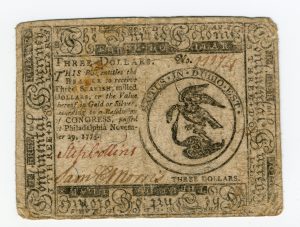 FAKING IT: BRITISH COUNTERFEITING DURING THE AMERICAN REVOLUTION Economics October 7, 2015 by Stuart Hatfield
FAKING IT: BRITISH COUNTERFEITING DURING THE AMERICAN REVOLUTION Economics October 7, 2015 by Stuart Hatfield
To this end a campaign was devised to undermine the nascent American economy in an attempt to achieve a twofer. If the economy was in shambles the Americans would not be able to purchase the men and material needed to continue the war. At the same, by undermining the economy they would also be undermining the American Congress, which was acting as the central government. Perhaps if people lost faith in the Congress, they would realize that war could not be won, and they would all return to the fold.
While these activities were effective to a point, the most effective strategy that was tried, and one that very nearly succeeded, was the massive undertaking of counterfeiting Congressional paper currency to the point of making it almost worthless, thus crashing the American economy. No economy, no more war.
How was it done?
For the majority of the war the city of New York was under control of the British. It was here that the majority of the counterfeiting was done. Even though bank notes had individual handwritten serial numbers and signatures, these were no deterrent as they were easily forged. In addition, most of the Continental currency that was printed by legitimate services was done on the cheap, with little eye to quality. This made the process of counterfeiting it much easier. Often the fake currency could be easily spotted because it was of higher quality than the legitimate bills. The paper was usually a higher quality and the engraving was of a much higher quality on the professionally done counterfeits.
One thing that set the legitimate currency apart was the special paper used, common paper infused with blue fibers and flakes of mica that set it apart from normal paper (a similar method is used today, which makes it much harder to simply photocopy a hundred dollar bill and spend it at the local grocery store). While the paper itself was special it was far from rare. In fact at one point British ships were intercepted on their way to New York that were found to be carrying not only the ink for counterfeiting but massive amounts of the paper.
The American frigate Deane, on August 9, 1779, captured the Glencairn out of Glasgow. The report of Commodore Samuel Nicholson of the Deane to the Continental Congress, as published in the Virginia Gazette of October 2, 1779, stated:
On board the Glencairn, a person says he had in charge a box, which was to be delivered to some person in New York, but upon our coming up with them and the ship striking, threw it overboard; upon which we went immediately after it, and with difficulty got it before it sunk, when upon examination we found it contained materials for counterfeiting our currency, consisting of types, paper with silk and isinglass in it &c. We have however determined to secure the person, as we believe him to be the sole intender of the villainy: The box we have on board and shall bring it with us to Boston.
As for how the bills were put into circulation, men who had deserted the Patriot cause and fled to British lines, lining their pockets with the fake cash, and convincing them to cross back over and spend what they could. A soldier named David Gambell of the 8th Pennsylvania Regiment, for example, had deserted and upon being captured was found with counterfeit money in his possession. He was court-martialed and sentenced to death by order of General Washington.[1]
Often in the New York newspapers were advertisements looking for people travelling into the colonies who would be willing to “wallpaper” with Continental bills. In the April 14, 1777 edition of the New York Gazette an ad appeared that specifically requested people to take into the other colonies “any number of counterfeit notes.” The advertisement came to the attention of General Washington who on April 18 sent a copy to Congress, writing that the scheme “shows that no artifices are left untried by the enemy to injure us.”[2]
British soldiers who became prisoners of war were on occasion charged with using counterfeit Continental money to purchase supplies, most notably after the capture of General Burgoyne’s army in 1777. According to the surrender terms the British were to be allowed to return to Europe. Congress, however, refused to allow their return, claiming several instances of British violations of the surrender terms. Among congressional complaints was the “spending habits” of the British prisoners when purchasing supplies from the locals. When General Howe was informed of the issues he denied the use of counterfeit currency in a letter to General Washington, calling the accusation that the men were knowingly spreading fake currency “too illiberal to deserve a serious answer.”[3] Later, a British ship was captured with letters and counterfeit money.
Was it effective in undermining the economy?
[Massive] amount of counterfeiting effects losses.. Paper money is a promise that it is worth what it says it is, legal tender for all debts public and private. Without massive gold and silver reserves, the dollar * was the relied [on Congress], [and] the fortunes of the army. * Devaluation of the currency made it hard to purchase supplies and necessities that the army needed to win the victories that could cause the currency to be worth something again. [The army needs supplies, supplies cost money, money relies on victories, victories rely on the army.].
With the specter of fake currency [and] low value, * large numbers of people in the colonies were ]un] willing to sell supplies to Congress or the army for paper money. This often lead to the army having to “requisition” supplies * [paid with] useless stacks of paper money and at worst written receipts * for reimbursement, someday. On the hand, the British army could * offer specie (gold or silver), quickly becoming the preferred people to sell to.
John Adams had to remind his wife Abigail to be very wary of taking any paper money. In a letter home during the war Adams admonished his wife: How could it happen that you should have 5 counterfeit New Hampshire money? Can’t you recollect who you had it of? Let me entreat you not to take a shilling of any but continental money or Massachusetts, and be very careful of that There is a counterfeit continental bill abroad sent out of New York, but it will deceive none but fools, for it is copper plate, easily detected…[4]
Congress [passed a law that counterfeiting was death.]. Under English Law [counterfeiting] was * treason and punishable by death and while most colonies [laws] regarding counterfeiting * dealt with British money.][In] 1780 Congress [offered] a bounty on counterfeiters, “two thousand dollars in the present Continental currency to any person or persons who take and prosecute to conviction.” This reward was worth about ten dollars specie at the time.[5] Often * fake money was compared * a plague, and the eradication of the plague was taken very seriously.
Congress [instituted] price and wage controls and * loans from European powers. The Treaty of Alliance with France in 1778 * helped prevent a war-ending panic.
As the value dropped, Congress [printed[ more money, driving the [currency] value down even further. By 1781, the exchange rate was $225 paper currency to $1 specie [i.e. gold or silver]. [A] Continental army private made $5 a month in Continental scrip, if he was paid at all. [After the war land bounties paid off the soldiers.]
Joseph Plumb Martin, a soldier from Connecticut, * [wrote]
… the fortune I acquired was small, only one dollar; I received what was then called its equivalent, in paper money, if money it might be called, it amounted to twelve hundred (nominal) dollars, all of which I afterwards paid for one single quart of rum; to such a miserable state had all paper stuff, called -money- depreciated.[6]
In 1781 May 12 edition of the loalist Rivington’s Royal Gazette wrote.
The Congress is finally bankrupt! Last Saturday a large body of the inhabitants with paper dollars in their hats by way of cockades, paraded the streets of Philadelphia, carrying colors flying, with a dog tarred, and instead of the usual appendage and ornament of feathers, his back was congress covered with the Congress’ paper dollars. This Bankrupt. example of disaffection, immediately under the eyes of the rulers of the revolted provinces, in solemn session at the State House assembled, was directly followed by the jailer, who refused accepting the bills in purchase of a glass of rum, and afterwards by the traders of the city, who shut up their shops, declining to sell any more goods but for gold or silver. It was declared also by the popular voice that if the opposition to Great Britain was not in future carried on by solid money instead of paper bills, all further resistance to the mother country were vain, and must be given up.[7]
Was this British strategy?
In a 1777 John Adams wrote
“[British] principal dependence is not upon [British] arms, I believe, so much as upon the failure of our revenue. To think they have taken such measures, by circulating counterfeit bills, to depreciate [American] currency, that it cannot hold its credit longer than this campaign. But [British] are mistaken.”[8]
In just the following year Thomas Paine, in a 1778 letter to President of the Congress Henry Laurens, suggested appealing to General Howe in New York to become involved in cases of suspected forgery:
Congress, I learn, has something to propose through the commissioners on the cartel respecting the admission and stability of the continental currency. As forgery is a sin against all men alike, and reprobated by all civil nations, query, would it not be right to require of General Howe the persons of Smithers and others in Philadelphia suspected of this crime? And if he or any other [Britih] commander continues to conceal or protect them in such practices, that, in such case, the Congress will consider the crime as the act of the commander-in-chief ? Howe affects not to know the Congress; he ought to be made to know them; and the apprehension of personal consequences may have some effect upon his conduct.[9]
An American privateer intercepted a British vessel that was carrying a January 30, 1780 letter written by General Henry Clinton, the Commander-in-Chief of the British forces in America, to Lord George Germaine, British Secretary of State. [Clinton wrote]:
I should be wanting to my civil commission, in closing this letter, without a few reflections on the present state of the money of America. Every day teaches [Clinton] the futility of calculations founded on its failure. No experiments suggested by your Lordship [Germaine,]; no assistance that could be drawn from the power of gold, or the arts of counterfeiting, have been left unstamped. But the currency like the widow’s cruize of oil, has not failed the Congress … I shall, nevertheless, my Lord, continue while I have the honor to command in America, assiduous in the application of those means entrusted to my care; if they cannot work its destruction, yet they embarrass Government …”
[‘Widow’s cruize of oil’ referred to by General Clinton, dates from about 875 years before Chist, and is found in the Bible in First Kings Chapter 17, verses 9 to 16. The widow of Zarephath meets the Prophet Elijah. Elijah asks for a drink of water and ‘a morsel of bread in thine hand. And [widow] said, As the Lord thy God liveth, I have not a cake, but an handful of meal in a barrel, and a little oil in a cruse: and, behold, I am gathering two sticks, that I may go in and dress it for me and my son, that we may eat it, and die. And Elijah said unto her, Fear not; go and do as thou hast said: but make me thereof a little cake first, and bring it unto me, and after make for thee and for thy son. 14 For thus saith the Lord God of Israel, The barrel of meal shall not waste, neither shall the cruse of oil fail, until the day that the Lord sendeth rain upon the earth. 15 And she went and did according to the saying of Elijah: and she, and he, and her house, did eat many days. 16 And the barrel of meal wasted not, neither did the cruse of oil fail, according to the word of the Lord, which he spake by Elijah.’’ This event was confirmed by Jesus in Luke chapter 4 verse 26. But unto none of them was Elias sent, save unto Sarepta, a city of Sidon, unto a woman that was a widow]
Clinton’s letter was printed in the Pennsylvania Journal on April 8, 1780. The letter was republished in England later that year.[10] Clinton was not only aware and encouraging the counterfeiting strategy, but also seems disappointed that the goal of crashing the American economy had so far failed.
Benjamin Franklin, wrote:
Paper money was in those times our universal currency. But it being the instrument with which we combated our enemies [the British] resolved to deprive us of its use by depreciating it; and the most effectual means they could contrive was to counterfeit it. The artists they employed performed so well that immense quantities of these counterfeits which issued from the British government in New York were circulated among the inhabitants of all the states, before the fraud was detected. This operated considerably in depreciating the whole mass, first, by the vast additional quantity, and next by the uncertainty in distinguishing the true from the false; and the depreciation was a loss to all and the ruin of many. It is true our enemies gained a vast deal of our property by the operation but it did not go into the hands of our particular creditors, so their demands still subsisted, and we were still abused for not paying our debts![11]
While it can be said that the British commanders, both Howe and Clinton, were certainly aware of the massive counterfeiting offensive, it seems that the actual execution of the plan was carried out on a “street” level.
The devaluation of Continental currency [lead] to the massive personal debt. [Taxes were expanded and raised to compensate.] Eventually this [caused] Shay’s Rebellion, and the need for a strong central government gave birth to the Constitution. [Counterfeiting] has been put into practice numerous times.[12]
[1] John Whiting, Revolutionary Orders of General Washington(New York: Wiley and Putnam, 1844), 118.
[2] John Fitzpatrick, ed., Writings of George Washington(Washington, DC: U.S. Government Printing Office, 1904-37), 7:433-35.
[3] The Writings of George Washington, edited by Jared Sparks, Boston, 1834, vol. v, p. 535 (Appendix).
[4] John Adams to Abigail Adams, May 25-27, 1777. Adams Family Papers: An Electronic Archive. Massachusetts Historical Society, http://www.masshist.org/digitaladams/
[5] Journals of the Continental Congress, 1774-1789. Edited from the original records in the Library of Congress (Washington, DC: U.S. Government Printing Office, 1904-37), 17:530.
[6] Joseph Plumb Martin, A Narrative of a Revolutionary War Soldier (New York: Signet, 2001), 208.
[7] Frank Moore, Diary of the American Revolution. From Newspapers and Original Documents (New York: Scribner & Sons, 1859), 2:425-6.
[8] Charles Francis Adams, Letters of John Adams, Addressed to His Wife. Edited by His Grandson, Charles Francis Adams (New York: Hurd and Houghton, 1876), 1:263.
[9] Frank Moore, Materials for History Presented from Original Manuscripts (New York: The Kenger Club, 1861), 108. “Smithers” is most likely James Smither, a well-known engraver in Philadelphia who was commissioned to create the engraving plates for Congress. It was later thought that he was involved in counterfeiting and when charged with high treason in 1778 he fled to New York. After the war he returned to Philadelphia and resumed his trade.
[10] John Almon, The Remembrancer or Impartial Repository of Public Events (London, 1780), 10:40.
[11] Benjamin Franklin, Memoirs of the Life and writings of Benjamin Franklin (London: H. Colbrun, 1812), 3:106.
[12] For example, during WWII Germany tried to flood the world market with counterfeit Bank of England notes; Lawrence Malkin, Krueger’s Men: The Secret Nazi Counterfeit Plot and the Prisoners of Block 19 (Boston: Little, Brown and Co., 2006). Dick K. Nanto (12 June 2009). More recently, North Korea has conducted counterfeiting operations against the US dollar. North Korean Counterfeiting of U.S. Currency, Congressional Research Service, RL33324, accessed September 20, 2015.
[3] An attorney as handsome as Jimmy Stewart meets a girl on a train trip who could pass for Carole Lombard. Who knew they could get married the same day? (Also a plot with Judy Garland And Robert Walker – couple marry during a soldier’s 48 hour leave in Manhattan in The Clock). Well, love at first sight is believable for those icons. The producer David O Selznick put in the plot a true event in which a pneumonia infection threatened the life of his younger brother, and the only treatment was penicillin, and the only available sample was in Utah, 2300 miles away. The penicillin was flown to New York for the price of a house!
http://www.threemoviebuffs.com/review/made-for-each-other.html Too much money chasing too few penicillin units.
‘’ On New Year’s Eve, 1938–39, the baby is rushed to the hospital with pneumonia. The baby will die within hours unless a serum is delivered by plane from Salt Lake City. Doolittle [the Wall Street Lawyer] agrees to provide funding to deliver the serum, but with a storm raging, and with a wife and children to consider, the pilot refuses to fly. John pleads over the telephone, and the pilot’s unmarried friend takes the job. The new pilot almost crashes in the mountains, and the plane’s engine catches fire a short distance from New York. The pilot is also injured and knocked unconscious after jumping from the plane and parachuting to safety, but he crawls to a nearby farm house after he comes to. The farmer sees the box containing the serum and telephones the hospital, and the baby is saved.’’ Wikipedia.
Disclaimer: The author of each article published on this web site owns his or her own words. The opinions, beliefs and viewpoints expressed by the various authors and forum participants on this site do not necessarily reflect the opinions, beliefs and viewpoints of Utah Standard News or official policies of the USN and may actually reflect positions that USN actively opposes. John Choate © No claim in public domain or fair use.
Utah Standard News depends on the support of readers like you.
Good Journalism requires time, expertise, passion and money. We know you appreciate the coverage here. Please help us to continue as an alternative news website by becoming a subscriber or making a donation. To learn more about our subscription options or make a donation, click here.
To Advertise on UtahStandardNews.com, please contact us at: ed@utahstandardnews.com.


Comments - No Responses to “Part 3. Inflation, waging trade war, and counterfeiting?”
Sure is empty down here...